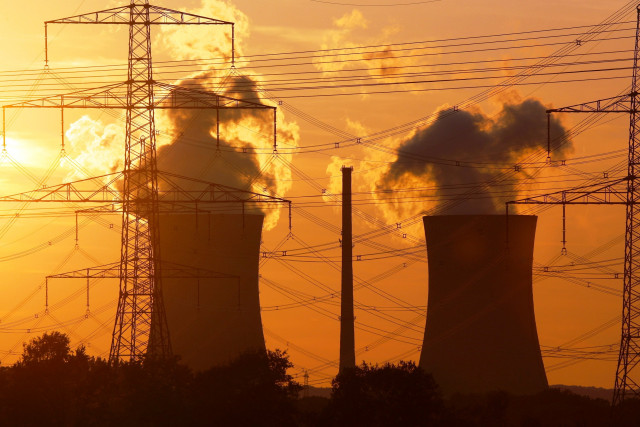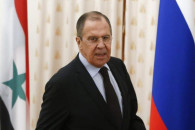Australia PM pushes to end India uranium sales ban
Gillard said the policy shift would apply only to India and not open up potential sales to Israel or Pakistan.

The move follows a landmark US agreement to support the civil nuclear programme in India, which is seen by Washington as an economic and geopolitical counterweight to China.
Asia's third-largest economy has long complained about the ban. Uranium from Australia would help it meet an ambitious target for nuclear energy growth, hampered by fuel shortages even at existing plants.
Australia has refused to sell nuclear material to India because it has not signed the Nuclear Non-Proliferation Treaty (NPT). Gillard's ruling Labor party will debate lifting the ban at its conference next month.
"I believe the time has come for the Labor party to change this position. Selling uranium to India will be good for the Australian economy and good for jobs," Gillard told reporters.
"This will be one way we can take another step forward in our relationship with India. We have a good relationship with India, it is the world largest democracy, a stable democracy."
The move is set to spark heated debate at the party's December conference, but should easily pass with support from Labor's dominant right faction. The policy does not need to go to parliament for approval, but the conservative opposition also supports uranium sales to India.
Gillard's comments came on the eve of US President Barack Obama's visit to Australia and would bring Australia's uranium policy into line with the United States.
"We welcome this initiative," India's Foreign Minister S.M. Krishna told reporters. "We attach importance to our relations with Australia, which are growing across the board. Energy is one of the key areas of bilateral cooperation."
Washington in 2008 signed a landmark civil nuclear agreement with India over the use of uranium for nuclear energy.
Critics accused the United States of undermining the global non-proliferation regime, but the deal was seen by President George W. Bush as the centrepiece of a new strategic relationship with India.
Australia, one of the United States' closest allies in the region, supported the US-India nuclear agreement as a member of the 46-member Nuclear Supplier's Group, but had continued to refuse to sell uranium to India.
Gillard said the policy shift would apply only to India and not open up potential sales to Israel or Pakistan, as only India had sought and received an exemption from the International Atomic Energy Agency and the Nuclear Suppliers Group.
"So that puts India in a class of its own," Gillard said. "When you look at other nations, whether it be Pakistan or Israel, they are not in that same class."
Australia has almost 40% of the world's known uranium reserves, but supplies only 19% of the world market. It has no nuclear power stations.
The country now has four mines, BHP Billiton's Olympic Dam, potentially the world's biggest; Energy Resources Australia's Ranger mine; the Beverly mine, owned by US company General Atomics, and Honeymoon mines, owned by Uranium One and Mitsui & Co.
Shares in smaller uranium producers and explorers rose, with Paladin Energy up 3.1% and Toro Energy up more than 10%.
Toro Energy managing director Greg Hall said the policy shift would help smaller miners attract investment.
"For smaller development companies like ourselves, it brings the opportunity of attracting new investors," Hall told Reuters.
"Indian companies have invested in copper and coal mines in Australia, and they are, of course, a candidate to invest in uranium properties for offtake agreements."
Greens opposed
While a decision to lift the ban would be welcomed by Australia's mining sector, it is strongly opposed by Labor's political allies, the Greens, who said the move would encourage a nuclear arms race in Asia and make Australia less safe.
Strict conditions are imposed on uranium exports to ensure it is used for power generation and not weapons. Nuclear-armed India has repeatedly clashed with neighbouring Pakistan, which also possesses nuclear weapons.
India has refused to sign the nuclear NPT, arguing it is discriminatory and flawed in allowing only countries which had tested nuclear weapons before 1967 to legally possess them.
Pakistan, Israel and North Korea are the only other non-signatories to the treaty.
Two-way trade between India and Australia is currently worth about $20 billion a year, with the balance skewed in Australia's favour because of India's voracious appetite for resources.
Canberra has forecast uranium exports to rise from around 10,000 tonnes a year to 14,000 tonnes in 2014, worth around A$1.7 billion ($1.74 billion).
BHP Billiton, which is planning a major expansion of its Olympic Dam copper and uranium mine, said it would review its position on sales to India if the government changed its policy.
Rio Tinto had no immediate comment.
Power push
India's 20 nuclear plants produce only a small fraction of the country's electricity and operate at about half capacity for lack of fuel. It plans to add nearly 30 reactors over the next 20 years, requiring more overseas uranium purchases.
Uranium prices have fallen below $55 a pound since the March 11 tsunami that knocked out Japan's Fukushima nuclear plant. That compares with January's price of nearly $75, itself nearly half a high of $136 in 2007 <UX-U3O8-SPT>.
For now, supplies of uranium to the world market continue to be supplemented with secondary sources of uranium – stockpiled fuel and nuclear arms decommissioned since the end of the Cold War -- which are now in decline. That additional supply provided nearly half of demand in 1999 but by 2010 it had dropped to 30%, according to sector estimates.
The decline in secondary supply may accelerate once the "megatons for megawatts" programme that converts Russian nuclear warheads into reactor fuel expires in two years, taking secondary supply lines from Russian and US uranium stocks to as low as 5%, from 40% now, analysts say.
BHP, Cameco, Rio Tinto and others are taking steps to dig new mines and expand old ones to take advantage of a forecast 20 percent leap in global uranium consumption by 2015.
In Australia, BHP also wants to mine 90,000 tonnes of uranium from its Yeelirrie deposit over 30 years but has yet to break any ground.


















COMMENTS
Comments are moderated and generally will be posted if they are on-topic and not abusive.
For more information, please see our Comments FAQ